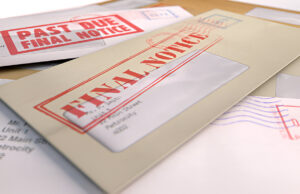How Bankruptcy Can Help With Debt from Unpaid Utility Bills in Texas

Facing Mounting Utility Bills in Texas? Here’s What You Can Do
It’s 100 degrees outside, and your AC bill just hit triple digits. Add water, electric, and gas, and your utility bills in Texas start to resemble a mortgage payment. If you’ve fallen behind and the shut-off notice arrives, you might be wondering: Can bankruptcy really help with unpaid utility bills?
Short answer: Yes, it can. Bankruptcy may offer relief by discharging utility debt, stopping service disconnections, and giving you a chance to reset your finances.
Let’s break it down, Texas-style.
What’s the Best Way to Handle Utility Debt in Texas?
If you’re dealing with disconnection notices or mounting late fees, you’re not alone. Many Texans fall behind on utility payments due to job loss, medical bills, or inflation.
Common Utility Bill Questions We Hear:
-
Can utility bills be wiped out in bankruptcy?
-
Will filing stop my lights from getting turned off?
-
What happens to my water or electric bill if I file for bankruptcy?
-
Do I need to pay a deposit to keep service?
We answer all these below—and show how Kisch Consumer Law can help you take action today.
How Does Bankruptcy Help With Unpaid Utility Bills in Texas?
1. Utility Bills Are Dischargeable Debt
Most people don’t realize that utility bills are considered unsecured debt, just like credit cards and medical bills. That means in Chapter 7 bankruptcy, these bills can usually be discharged completely—no repayment required.
In a Chapter 13 bankruptcy, unpaid utility bills are added to your repayment plan and may only be partially repaid, depending on your income and assets.
2. Filing for Bankruptcy Stops Disconnection
The moment you file, the automatic stay kicks in. That’s legal speak for “no more shutoff threats.” Your utility provider (electric, gas, water, etc.) must pause any collection or disconnection efforts once you’ve filed.
3. You Can Keep Your Service On—With a Catch
Most utility companies will require a new security deposit (usually based on your average monthly usage) to keep your service active. But compared to losing access to water or electricity, that’s a small price for peace of mind.
When Should I Consider Filing Bankruptcy for Utility Debt?
Here are some signs bankruptcy might be the best option:
-
You’re more than 30 days past due on multiple utility bills.
-
You’ve received a disconnection notice and have no way to catch up.
-
You’re also juggling credit card, medical, or rent debt.
-
You’ve taken out payday loans to pay utilities—dangerous territory.
In Texas, Kisch Consumer Law offers personalized consultations to help you weigh your options. Learn how to protect your income and utilities through strategic bankruptcy planning.
Quick Tips to Stop Utility Disconnection Before It Happens
If you’re not ready to file yet, try these options:
-
Contact your provider for a payment plan or deferral.
-
Apply for LIHEAP (Low Income Home Energy Assistance Program).
-
See if local nonprofits like Texas Utility Help or 211 Texas can assist.
-
Avoid payday loans—they make things worse.
Still no resolution? Bankruptcy may be your strongest option to reset your bills.
What Happens to My Utility Bills After I File?
In Chapter 7:
-
Past-due utility bills are wiped out completely.
-
You’ll likely need to pay a deposit to maintain service.
-
You can start fresh without utility collections haunting you.
In Chapter 13:
-
Utility debt gets folded into your 3–5 year repayment plan.
-
You may only have to pay a fraction of the full amount.
-
You must stay current on new utility bills during the plan.
Can I Include Other Household Bills in Bankruptcy?
Absolutely. Utility bills are often just the tip of the iceberg. You can also address:
-
Medical bills
-
Credit card debt
-
Rent arrears
-
Phone and internet bills
-
Collections or judgments
Explore your full debt relief options with Kisch Consumer Law, where consumer protection meets real legal solutions.
FAQs About Utility Bill Bankruptcy in Texas
Can filing bankruptcy stop my power from getting turned off?
Yes. The automatic stay in bankruptcy stops disconnection immediately.
Can I discharge utility debt in bankruptcy?
Yes. Utility debt is considered unsecured debt, which can be discharged in Chapter 7 or reduced in Chapter 13.
Will I need to pay a new deposit?
Usually, yes. Most providers require a security deposit after you file to keep services active.
What if I’m already disconnected?
You may still be able to get service restored by filing bankruptcy and arranging a deposit with your provider.
Why Choose Kisch Consumer Law for Your Utility Debt Case?
When it comes to bankruptcy, not all law firms understand the fine print of Texas utility laws and consumer protection statutes. Here’s why Kisch Consumer Law stands out:
-
Texas-based consumer law expertise
-
Decades of experience in bankruptcy and debt relief
-
Free consultations to help you explore your options
-
Tailored legal strategies for stopping disconnections and preserving dignity
Let Kisch Consumer Law help you protect your home and sanity.
Final Thoughts: Don’t Let Utility Debt Drain Your Power
Literally and figuratively—don’t let unpaid utility bills cut you off from your life.
Bankruptcy may sound like a last resort, but for many Texans, it’s the first step to taking back control. Whether your bills have become unbearable or you’re just tired of juggling due dates and disconnection notices, there is a legal path to relief.
So if your financial life feels like it’s circling the drain, maybe it’s time to flush the stress—and reset your finances with a call to the folks who know what they’re doing.
Visit Kisch Consumer Law today to learn more about creating a data-driven legal strategy that fits your needs and safeguards your utilities. Because lights off is no way to live in Texas.
